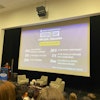This study is the first of its kind that shows that women receive less money when they submit grants to the federal government.
 Dr. Teresa Woodruff
Dr. Teresa Woodruff
When women receive less grant support from the start of their career, they are less likely to succeed, said coauthor of the study, Dr. Teresa Woodruff, the Thomas J. Watkins Professor of Obstetrics and Gynecology at Northwestern University Feinberg School of Medicine and director of the Women’s Health Research Institute.
“With less federal funding, women can’t recruit the same number of grad students to work on their research or buy the same amount of equipment as their male counterparts, Woodruff said. “A funding disadvantage in the formative years of a woman scientist’s career can be especially handicapping because research shows that it is likely to snowball over time.”
The backgrounds of the 53,000 first-time principal investigators who participated in the study (57 percent men and 43 percent women) displayed that men and women had statistically hazy records before receiving their first National Institutes of Health grant.
The study also found that female principal investigators at the Big Ten universities received an average grant amount of $66,365 versus $148,076 for male principal investigators; at Ivy League schools, women received an average grant amount $52,190 versus $71,703; and at the top 50 NIH-funded institutions, first-time female principal investigators received an average grant amount of $93,916 versus $134,919 for men.
“Having women in science increases the rate of discovery in science and the quality of science overall,” said coauthor Dr. Brian Uzzi, professor of management and organizations at Kellogg. “Women in science don’t only add to discovery by bringing in the brain power from the other half of the human race, but also the culture of science. So much of science today is done in teams, and women on teams promote different points of view, increasing our comprehension of problems whether in medicine, business organizations or education institutions.”



















